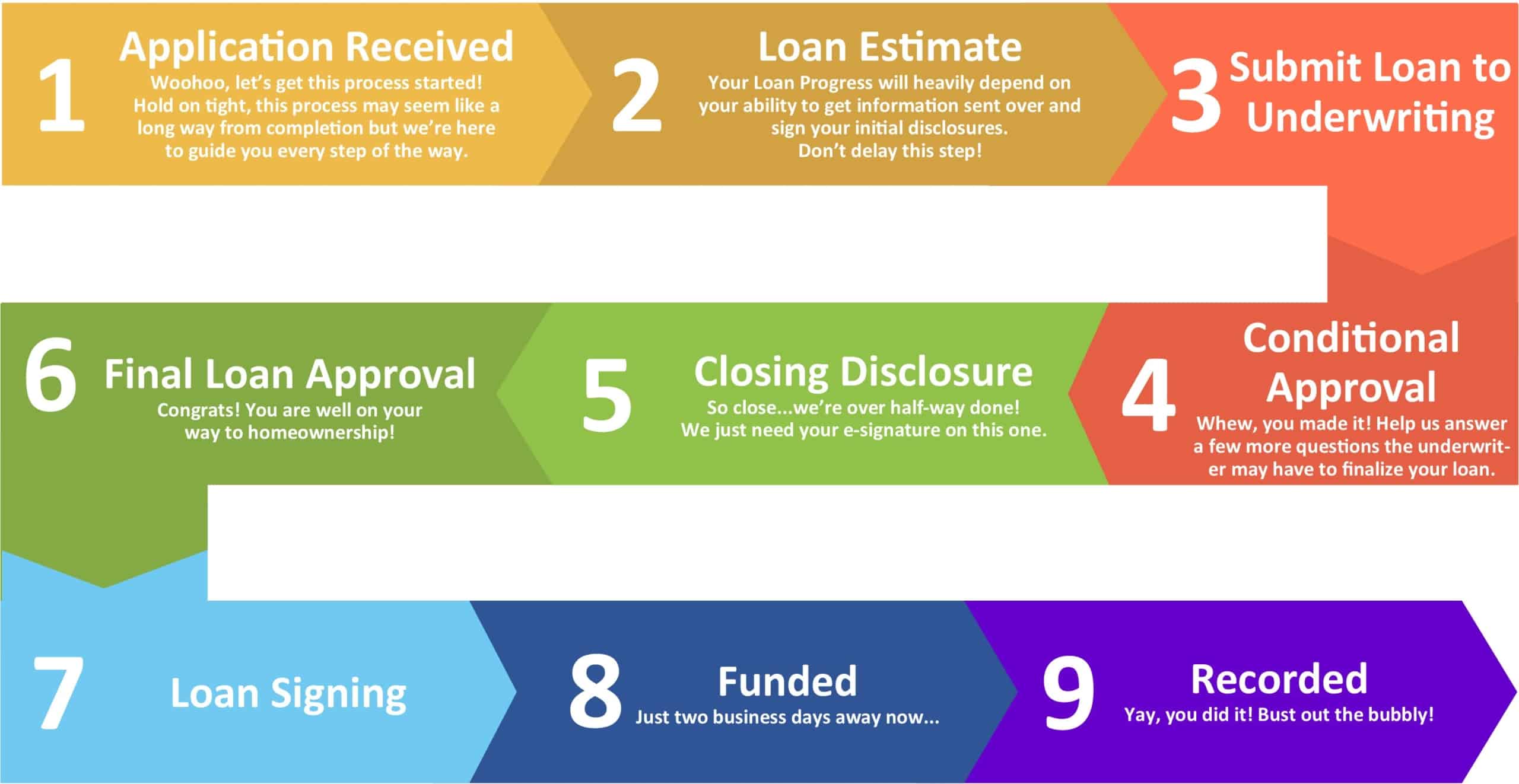
There are 6 data points that the Federal government considers to be a complete application. The data points are your full name, your income and social security number (to obtain a credit report), the property’s address, an estimate of the property’s value and the loan amount. Once these 6 data points are received, loan disclosure laws requires the lender to deliver a Loan Estimate within 3 business days.
A Loan Estimate is a three-page document that tells you the important details about the loan. It will include the estimated interest rate, monthly payment and total closing costs for the loan. The Loan Estimate also includes information about the estimated costs of taxes and insurance, and how the interest rate and payments may change in the future. All lenders are required to use the same Loan Estimate form to make it easy for you to compare loans and select the right one for your situation.
A Loan Estimate is not an approval for your loan application. It shows you what the loan terms are if you decide to move forward with that lender. You will need to provide the lender with additional information before getting an approval.
Your loan application and documents will be sent to the underwriter who will verify your income, assets, debt, and property details to issue a final approval for your loan.
Conditional Loan Approval, a status assigned to applications requiring clarification or missing information. It is neither an approval nor a denial. This means the underwriter on your loan has most of the information they need to approve your application. They need a few pending conditions or questions answered before issuing final loan approval.
As a borrower, some common approval conditions are: updated bank statements or paystubs, verification of homeowners insurance, gift letters for home buyers using gift funds or letters of explanations for recent large deposits or withdrawals. This is not an all-inclusive list and each loan is different. When Conditional Loan Approval is reached, we will contact you with what items we will need your help with.
What is a Closing Disclosure, aka “CD”? This is a five-page document that provides details about the mortgage loan you have selected. It includes the loan terms, your projected monthly payments, and other closing costs. Signing this document will not hold you to the loan. Federal law requires the CD to be signed at least 3 days before signing your final loan documents. During these 3 days, the lender, and escrow will reconcile all fees and prepare a final CD prior to signing. If you find any corrections needed on the CD, we will get them corrected prior to your final loan signing.
Final Loan Approval is when you have met the requirements and conditions to close on your new mortgage. Typically a Closing Disclosure has either already been sent to you or you will be receiving it at Final Loan Approval.
After your loan is approved, the lender will start working on your final loan documents. We recommend that you review the documents prior to signing and make sure that the interest rate and loan terms are what you were promised. Also, verify that the name and address on the loan documents are accurate. The signing normally takes place in front of a notary public.
There are also several fees associated with obtaining a mortgage and transferring property ownership which you will be expected to pay at closing. Bring a cashiers check for the down payment and closing costs if required. Personal checks are normally not accepted.
Your loan will typically close shortly after you have signed the loan documents. On owner occupied refinance loan transactions federal law requires that you have 3 days to review the documents before your loan transaction can close.
You will be able to sign your final loan documents 3 days after you have signed your Closing Disclosure. You will meet with a notary in person at a predetermined location, date, and time. Furthermore, you will need to bring a valid government issued ID and a cashier’s check for your closing costs, if applicable. After the signing, the notary will deliver the documents to the escrow officer, who will deliver them to the lender for review. When the lender is satisfied that all required documents have been signed and all outstanding loan conditions have been met, they will notify escrow that they are ready to disburse the loan funds to escrow.
Funding refers to the process of wiring or releasing money from a mortgage lender to the escrow company in order to pay for the home you are purchasing or to pay off your current mortgage if refinancing.
The escrow officer will send the documents to transfer the property from the sellers to the buyers (for purchases) and record the transaction with the county. Recorded mortgages provide protection for lenders as well as property owners and demonstrates your claim on the property.

